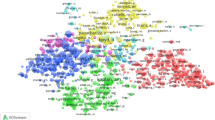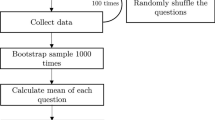Abstract
How difficult is it for political scientists in Britain to engage with the mass media and what benefits can they expect from such engagement? On the basis of a survey of academics from all disciplines who appear frequently on the broadcast media, a second survey of political scientists and interviews with academics, journalists and producers we examine how often UK academics appear on the media, how they manage to get invited to appear and what they talk about over the airwaves. The evidence points among other things to the predominantly passive role of scholars, especially social scientists, as media commentators and the limited opportunities that traditional broadcast media offer for research dissemination. If getting research out to a wider audience is a key goal of media engagement, then blog posts appear to be more effective than seeking radio or TV coverage. The article goes on to explore the implications of the results for the wider normative debate about the need for academics to engage with the public through the media.
Similar content being viewed by others
References
Bastow, S.J., Dunleavy, P. and Tinkler, J. (2014) The Impact of the Social Sciences. London: Sage.
Bird, K.S. (2011) Do women publish fewer journal articles than men? Sex differences in publication productivity in the social sciences. British Journal of Sociology of Education 32 (6): 921–937.
Bird, K.S. (2013) Women academics publish less than men. Or do they …? LSE Impact Blog, 25 August, http://blogs.lse.ac.uk/impactofsocialsciences/2012/08/07/women-publish-less-than-men/, accessed 20 May 2014.
Boden, R. and Epstein, D. (2011) A flat earth society? Imagining academic freedom. The Sociological Review 59 (3): 476–495.
Calhoun, C. (2009) Social science for public knowledge SRC, http://publicsphere.ssrc.org/calhoun-social-science-for-public-knowledge/, accessed 20 May 2014.
Cowley, P. (2013) Making an impact: What hacks want from boffins ballots and bullets (University of Nottingham Blog), September 10, http://nottspolitics.org/2013/09/10/making-an-impact-what-hacks-want-from-boffins/, accessed 20 May 2014.
Higher Education Statistics Agency (HESA). (2013) Staff in Higher Education Institutions, https://www.hesa.ac.uk/pubs/staff, accessed 12 November 2013.
Flinders, M. (2012) You don’t need a weatherman to know which way the wind blows: A response to Peter John on the relevance of political science. LSE British Politics and Policy Blog, 25 April, http://blogs.lse.ac.uk/politicsandpolicy/archives/23069, accessed 20 October 2013.
Lightowler, C. and Knight, C. (2013) Sustaining knowledge exchange and research impact in the social sciences and humanities: Investing in knowledge broker roles in UK universities. Evidence & Policy: A Journal of Research, Debate and Practice 9 (3): 317–334.
John, P. (2012) How relevant is UK political science? A riposte to Matthew Flinders and Peter Riddell. LSE British Politics and Policy Blog, 17 April, http://blogs.lse.ac.uk/impactofsocialsciences/2012/04/17/political-science-relevant/, accessed 20 October 2013.
Joy, S. (2014) Can engaging with the public help your career in academia? Guardian Higher Education Network Blog, http://www.theguardian.com/higher-education-network/blog/2014/apr/11/can-engaging-with-public-help-academic-career, accessed 20 May 2014.
O’Loughlin, B. (2008) The Role of UK Academics as Security ‘Experts’ for News Media Royal Holloway. University of London Politics and International Relations Working Paper No.7, January.
Orr, G.D. (2010) Academics and the Media in Australia. University of Queensland TC Beirne School of Law Research Paper No. 10-02.
Paulhus, D.L. (1991) Measurement and control of response biases. In: J.P. Robinson, P.R. Shavey and L.S. Wrightsmann (eds.) Measures of Personality and Social Psychological Attitudes. San Diego, CA: Academic Press.
Rowe, D. and Brass, K. (2008) The uses of academic knowledge: The university in the media. Media, Culture & Society 30 (5): 677–698.
Stark, A. (2002) Why political scientists aren’t public intellectuals. Political Science & Politics 35 (3): 577–579.
Tourangeau, R. and Yan, T. (2007) Sensitive questions in surveys. Psychological Bulletin 133 (5): 859–883.
Acknowledgements
We would like to thank the journalists and producers from BBC Radio, BBC Television, Channel 4 News, Sky News and LBC for talking to us. Our thanks also go to the academic colleagues who responded to our questionnaires and agreed to be interviewed. We are grateful to Philip Cowley (Nottingham), Matthew Flinders (Sheffield), Simon Hix (LSE), Peter John (UCL), Martin Lodge (LSE), Tim Newburn (LSE) and Tony Travers (LSE) for their help and advice. The Department of Government at LSE provided financial support for some of our interviews.
Author information
Authors and Affiliations
Consortia
Additional information
The LSE GV314 Group consists of staff and students in the Department of Government at the London School of Economics and Political Science following the undergraduate course ‘Empirical Research in Government’ (course code GV314). For this project it included Niovi Antoniou, Juliana Apopo, Jessica Austin, George Edwards, Stephanie Gale, Mark Heffernan, Chloe Kiliari, Shreya Krishnan, Debbie Mantzouridis, Sophie Moon, Edward C. Page, Catherine Rawsthorne, Naomi Russell, Alice Stott and James Yarde.
Appendices
Appendix A
The media experts survey, conducted in February and March 2013, asked 351 academics of all disciplines from 26 universities who had appeared most frequently on the media about their experiences. The sample was drawn up by first contacting the press offices of all 72 universities in the United Kingdom listed in the Political Studies Association Membership Handbook. Our original intention included an examination of how many academics who appeared frequently on the media were from political science and so we wanted universities where politics academics were located. We asked for each university to give the names of the academics, any discipline, who appeared most often on radio and television. Only 26 universities replied, although this included two-thirds of the Russell Group universities. We asked for approximately 20 names, and this search produced 574 names. Sixteen of the names were invalid, and of the 558 valid emails sent out we received 351 responses after three reminders, a response rate of 63 per cent.
For the politics survey, conducted between April and June 2013, we sent out a questionnaire to every member of the Political Studies Association listed in its 2012 Members Handbook. Excluding invalid email addresses we sent out 1,010 questionnaires. We received 624 replies, a response rate of 62 per cent.
The sample of neither survey was random, and thus both must be presumed to be subject to selection bias. Unfortunately, the available statistics do not help us understand what this bias might be.
We would not expect our media experts to be representative of academics in higher education as a whole. If our estimates from the politics survey are correct, we would expect the respondents to the experts survey to be more male and older than academics in the population at large. Twenty-one per cent of this sample were women (compared with 39 per cent of academics in HE institutions in 2011–2012) (see HESA, 2013 for the statistics used in this section ). The age structure of our media academic respondents had fewer younger academics (for example, 1 per cent of the sample and 12 per cent of all academics in 2011–2012 were under 30 and 54 per cent of the sample was aged 46–65 compared with 42 per cent of academics at large). However, we have no available figures to explore in what way our sample is unrepresentative of academics who appear on the media.
Members of the Political Studies Association account for, by the Association’s own estimates, 30 per cent of university staff in the field. It is difficult to estimate how non-members might differ from members in regard to the questions we ask. Since by some methods of assessing it, gender is related to media appearances we might anticipate any gender bias in our politics survey to have an impact on our estimates. In our politics sample 28 per cent were women. This is below the 39 per cent of women academics in business and social science in 2011–2012. However, ‘political science and economics have represented particularly masculine areas of the social sciences’ (Bird, 2011). Bird (2013) gives the proportion of women in political science as 24 per cent. The Political Studies Association membership in 2012 was 30 per cent women. These figures point to, at most, a slight underrepresentation of women among our respondents.
However we were concerned that the questionnaire, asking about behaviour often associated with desirable attributes of being an academic – publishing a lot and appearing on the media – might produce non-response and response bias in the survey and thus lead us to overestimate the frequency of such desired behaviours (see Paulhus, 1991; Tourangeau and Yan, 2007).
Appendix B
In the regression equation we included as the dependent variable a simple binary variable reflecting whether the respondent reported appearing on the broadcast media more than twice. The sub-discipline variable is the standardised values of the predictions of the impact of 22 of the 23 sub-discipline dummy variables in Table 2 (British Politics excluded) when regressed with the dependent variable. The regional variable was derived in a similar way, through generating the standardised values of the predictions of the impact of 12 of the 13 sub-discipline dummy variables in Table 3 (London excluded) when regressed with the dependent variable. The age variable is the simple age categories we included in the questionnaire (1=under 30; 2=30–45; 3=46–65; 4=over 65), the research activity variable is the response to our question of how much the respondent has published in academic outlets over the last 2 years (1=nothing; 2=one or two pieces; 3=more than two pieces), and the blog variable is the answer to our question of whether the respondent has blogged over the past 2 years (1=no, 2=once or twice, 3=three times or more). Using the ordinal variables in this way gave results hardly any different to using permutations of dummy variables derived from the same questions. Gender, whether the respondent used tweets for professional purposes and whether the respondent reported having taken active steps (whether successful or not) to interest the media were simple binary variables.
Rights and permissions
About this article
Cite this article
The LSE GV314 Group. Scholars on air: Academics and the broadcast media in Britain. Br Polit 9, 363–384 (2014). https://doi.org/10.1057/bp.2014.13
Published:
Issue Date:
DOI: https://doi.org/10.1057/bp.2014.13




